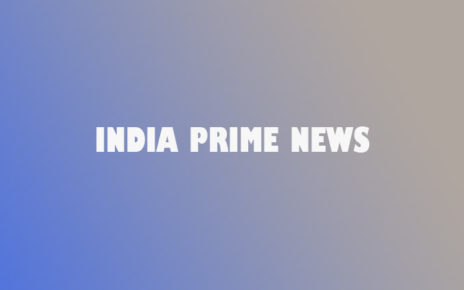With signals from #Telangana of early dissolution of the State Assembly and consequent state polls, prospects of a mini general election in the winter months are coming to the fore. Rajasthan, Madhya Pradesh, Chhatisgarh and Mizoram Assemblies are completing their tenure at the end of the year or in January and elections in these states are most likely to take place towards the end of this year.
TRS leader and Telangana Chief Minister K. Chandrasekhar Rao has called a meeting of the state cabinet on Thursday, September 6, 2018, which, observers say, is likely to decide upon early dissolution of the State Assembly. The ball would then be in the court of the Election Commission, which will have to take a decision on holding elections in the state along with the polls in other states which are scheduled to have Assembly elections in the winter.
The primary reason driving Chandrasekhar Rao towards early elections in Telangana appears to be the prospect of Congress victories in one or more of four states going to the polls in the winter. A Congress win in the Assembly elections may queer the pitch not only for the #Narendra Modi led National Democratic Alliance, NDA, Government at the Centre but also for other states which are going to have elections simultaneously with the Lok Sabha elections to be held in the normal course in April or May 2019.
The TRS also wants to take the early mover advantage in Telangana as the opposition parties in the state, mainly the Congress and the Telugu Desam Party, TDP, are not yet believed to be battle ready for the Assembly elections. If the Assembly elections in the state are held early, they may not get the time to regroup and perhaps enter into formal or informal alliances with like-minded parties to oppose the TRS.
The TRS and Chandrasekhar Rao also appear to be worried at the prospect of the mood in the country changing in case of impressive Congress victories in the winter Assembly elections to be held in Rajasthan, Madhya Pradesh, Chhatisgarh and Mizoram.
Another significant development in the last fortnight has been the Law Commission draft report on holding #simultaneous Lok Sabha and state Assembly elections. Though the commission has ruled out the possibility of holding simultaneous elections in the near term, it has supported the idea on the grounds of savings, administrative ease and smooth policy implementation.
But the Commission has kept open the possibility that the elections can be held simultaneously to a limited extent if the terms of certain legislative Assemblies are curtailed or extended. The draft report says, “In order to achieve holding simultaneous elections, terms of certain state legislative assemblies will require curtailment or extension, necessitating amendment to the Article 172 of the Constitution. The amendments to the Constitution and other statutes are kept to the barest minimum.
“Its first suggestion is to hold elections to 12 Assemblies and Delhi along with the Lok Sabha polls in 2019, leaving until 2021 the polls to the remaining 16 Assemblies and Puducherry.
“The term of the state legislative assemblies so constituted as a result of the elections in 2021 shall be only for thirty months or till June 2024, whichever is earlier.
“Subsequently, elections to the House of the People (Lok Sabha) and all the state legislative assemblies and Union territories can be held together from 2024, completely synchronizing the elections,” the Commission said.
Curtailment or extension of the tenure of state Assemblies to hold simultaneous elections with the Lok Sabha polls requires Constitution amendments, which the Narendra Modi Government may find it difficult to bring about. That is because there is no consensus among political parties so far on the simultaneous poll issue. But if Governments of certain states decide upon early dissolution of the Assemblies, the objective can be achieved to a certain extent. Similarly if the Narendra Modi Government decides upon early dissolution of the Lok Sabha to hold simultaneous polls with elections due in certain state Assemblies, there is nothing to stop the Government from doing that.
Ultimately whether India will see a mini general election in the winter will depend upon the reading of the political situation by the Narendra Modi Government at the Centre and Governments ruled by different political parties in the states. If the NDA Government feels that its prospects in the Lok Sabha elections may be hit by Congress victories in the winter Assembly elections to be held in four states, it may think of advancing the Lok Sabha elections to hold the polls along with the Assembly elections.
Similarly different parties ruling in the states may decide upon dissolution of their state Assemblies, making it necessary to hold early polls, if they think it is politically advantageous.
So, all in all, the question of a mini general election during the winter months still remains open. Which way the wind will blow will depend upon the reading of the political situation by the political forces ruling at the Centre and in different states.
